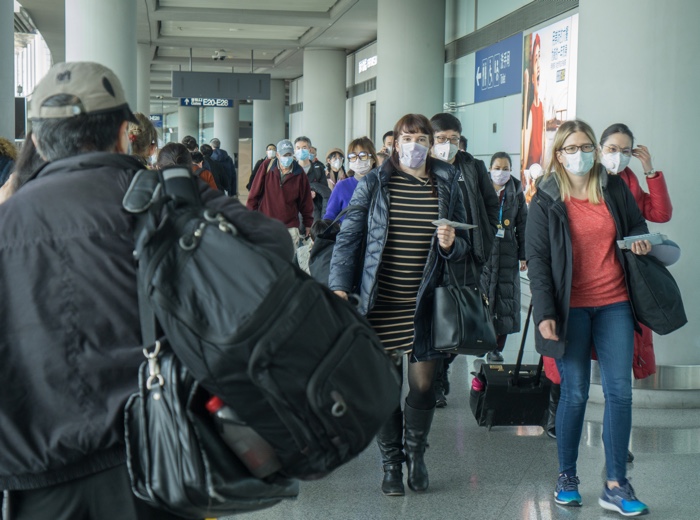The Employer Battles of the Coronavirus

30 January 2020

By Paige Wilson
The outbreak of the coronavirus is having a material impact globally with 132 lives lost in China so far and over 6,000 confirmed cases of the virus reported worldwide. A fifth person has at this date tested positive to the coronavirus in Australia.
There is absolutely no need for general alarm in Australia – but in our view it is appropriate and reasonable for Australian businesses to take prudent action in advance of any risk of a health pandemic.
Many public organisations have already published statements about managing the risks posed by this virus, including State Departments of Education. Updates from the Commonwealth Department of Health can be viewed here.
Businesses and employers are being advised to take this virus seriously and to inform employees on symptoms to look out for and for employees to report any recent travel to China including specific dates. It is important to note that the incubation period for the virus is believed to be up to two weeks during which a carrier will often not exhibit any symptoms at all.
The Australian Government Chief Medical Officer Brendan Murphy has confirmed that there is no need for alarm in Australia. He said Australia has well-established procedures to ensure people with illnesses travelling into the country are detected at the border. Additional measures for passengers travelling directly from Wuhan are in place.
According to the World Health Organisation, “common signs of infection include respiratory symptoms, fever, cough, shortness of breath and breathing difficulties. In more severe cases, infection can cause pneumonia, severe acute respiratory syndrome, kidney failure and even death.” Currently, there is no specific treatment for this virus and no vaccine to prevent it.
World Health Organisation (WHO) guidelines can be accessed here.
Employers may also wish to consider the following practices:
- asking employees who have recently returned from affected areas in China, or where a member of the employee’s household has recently returned from an affected area in China to remain away from the workplace for a period of 14 days from their return date (with appropriate work from home arrangements where practicable)
- monitoring the situation and adopting protocols recommended by the WHO and DOH;
- encouraging employees to visit the WHO and DOH websites;
- informing employees of the symptoms of the coronavirus;
- reinforcing or implementing safety policies and procedures;
- providing contact information for reporting coronavirus-related concerns; and
- remaining mindful of occupational health and safety regulations if respirators or face masks are offered to employees.
Many employers are now faced with the challenge of understanding their rights and obligations in managing employees during this health pandemic. Employers are reminded to keep in mind employee safety, employer rights and leave entitlements to ensure the best outcome for everyone involved.
Workplace Health and Safety
Employers have a duty to provide and maintain a safe workplace. During this time businesses should review the workplace to ensure that it is, to the extent that is possible, free from risk and that arrangements are considered and put in place to assist workers, and respond to any incident, should the need arise.
Businesses should consider health and safety procedures to prevent employees from contracting the virus and ensure that all staff are aware of the requirements in this regard. Employer work health and safety obligations may extend to measures ranging from mandatory quarantine of employees in the event of travel to infected areas, for example, by requiring employees to work from home, to providing alternative locations of work and ensuring the availability of P2/N95 face masks or equivalent PPE.
One particular factor to consider is ensuring employees have access to adequate facilities for washing hands with soap and water or alcohol-based hand rub, with such being a precautionary measure recommended by the DOH to protect against infections.
Employers however should also bear in mind disability discrimination laws and take care not to discriminate against employees on the basis of actual or imputed diseases or infections.
At this stage employees may only to be stood down in regard to the workplace health and safety risk they may pose to the workplace. Unless there is a specific right to stand an employee down without pay, any stand down must be paid.
Alternative Working Arrangement
Employers may want to consider implementing temporary flexible work arrangements with employees who may be impacted. Flexibility in the form of hours, location and pattern of work could mitigate the effects of an emergency and maintain productivity. Consider in particular whether it is feasible for employees to work from home and perform their usual or modified duties until it is safe for them to return to work.
Access to Leave Entitlements
In circumstances where employees have been quarantined due to the coronavirus disease, they may request to access their personal/carer’s leave over this period to mitigate any loss of income.
Personal/carer’s leave may be taken where the employee is not fit for work due to a personal illness or injury, or to provide care or support to a member of their immediate family or household due to illness, injury or unexpected emergency. In order to access this leave, the employee should provide notice and may be required to provide evidence of the reason for the leave upon the request of the employer.
Annual leave can only be taken by mutual agreement so employers will need to make sure agreement with the employee is reached before proceeding with processing of annual leave.
For more information on employer rights and obligations concerning the coronavirus please contact us.
Paige Wilson is an experienced workplace relations consultant at HR Assured. Paige regularly assists businesses with best practice management of their employees for all kind of matters, ranging from disciplinary and performance management processes to award compliance.




